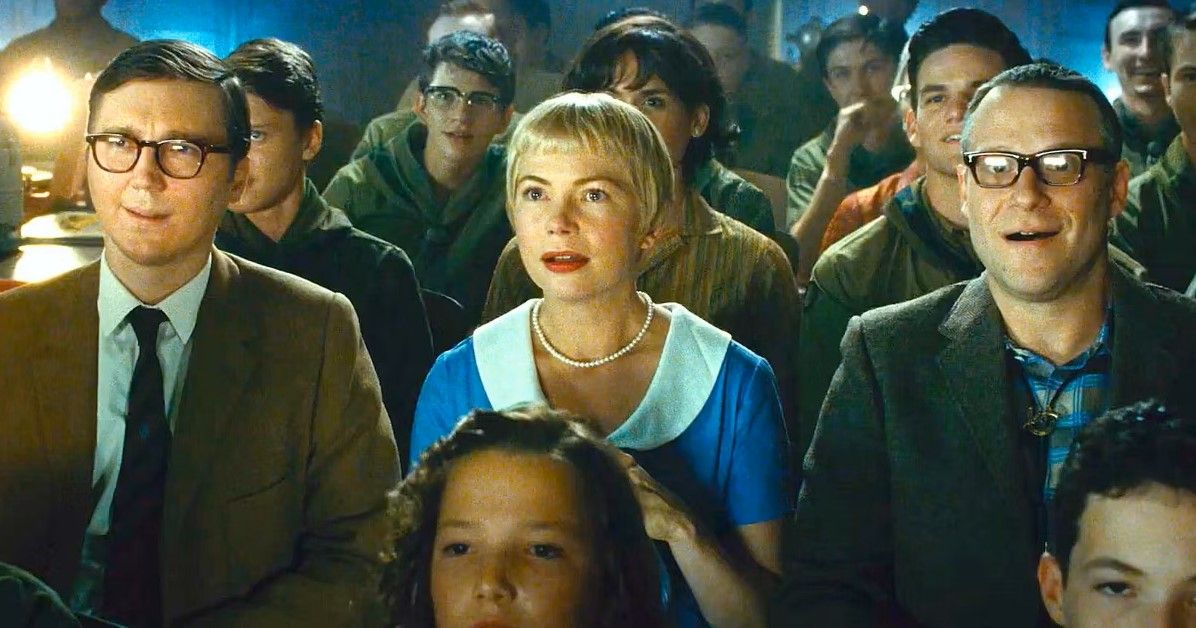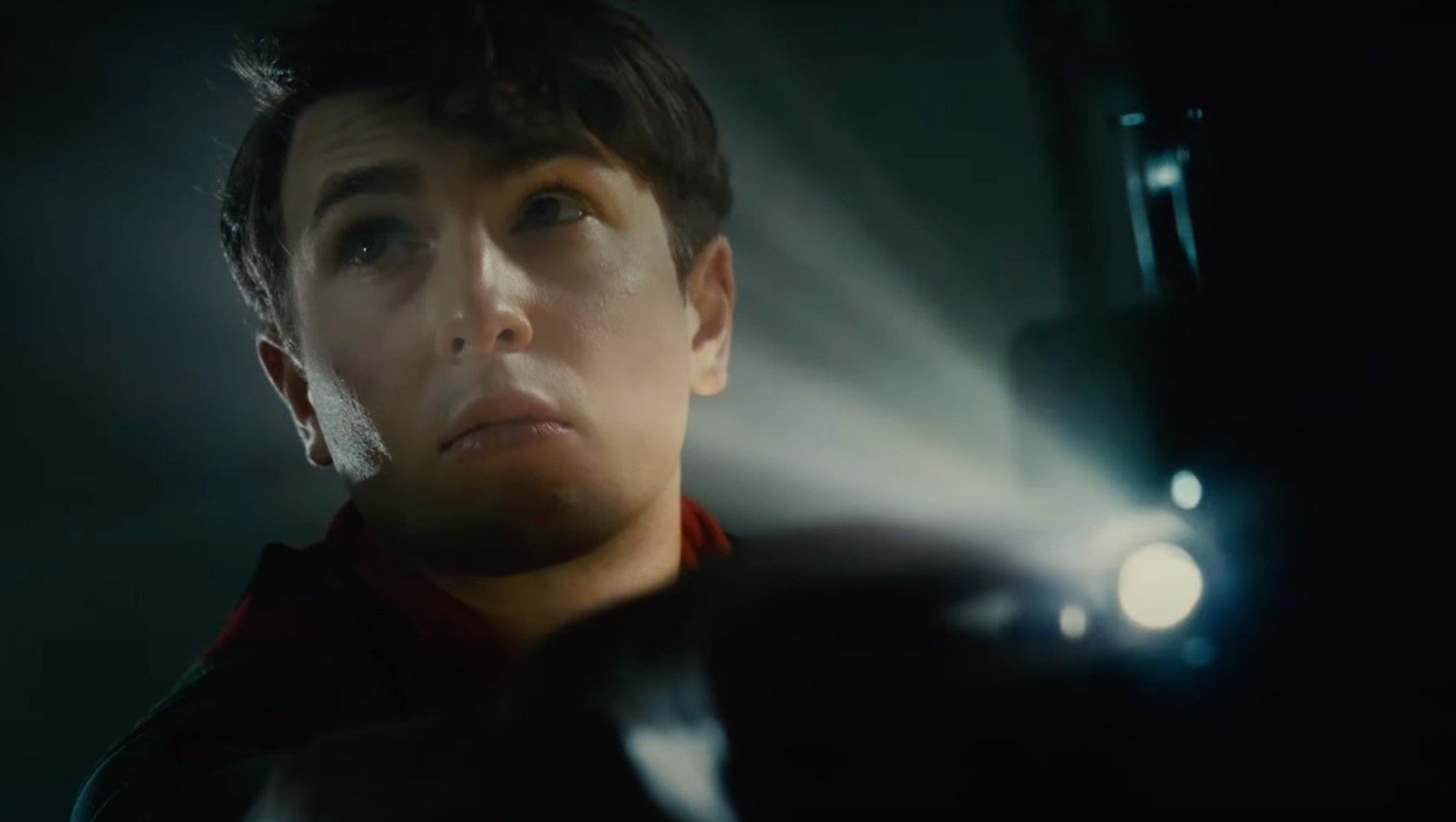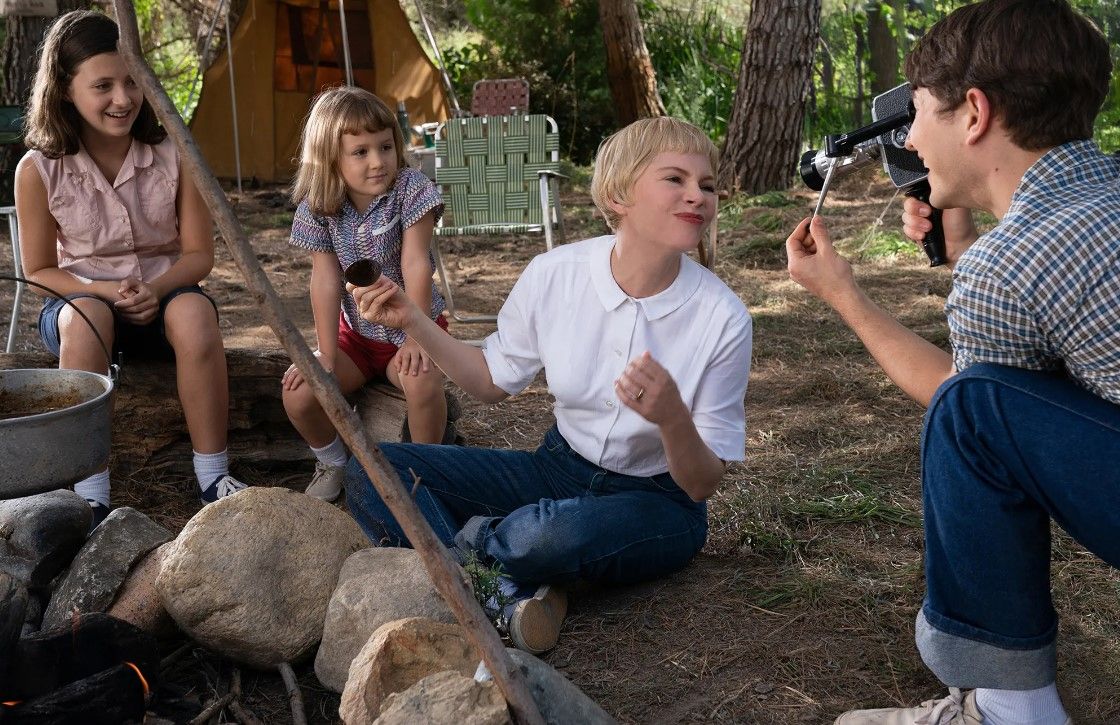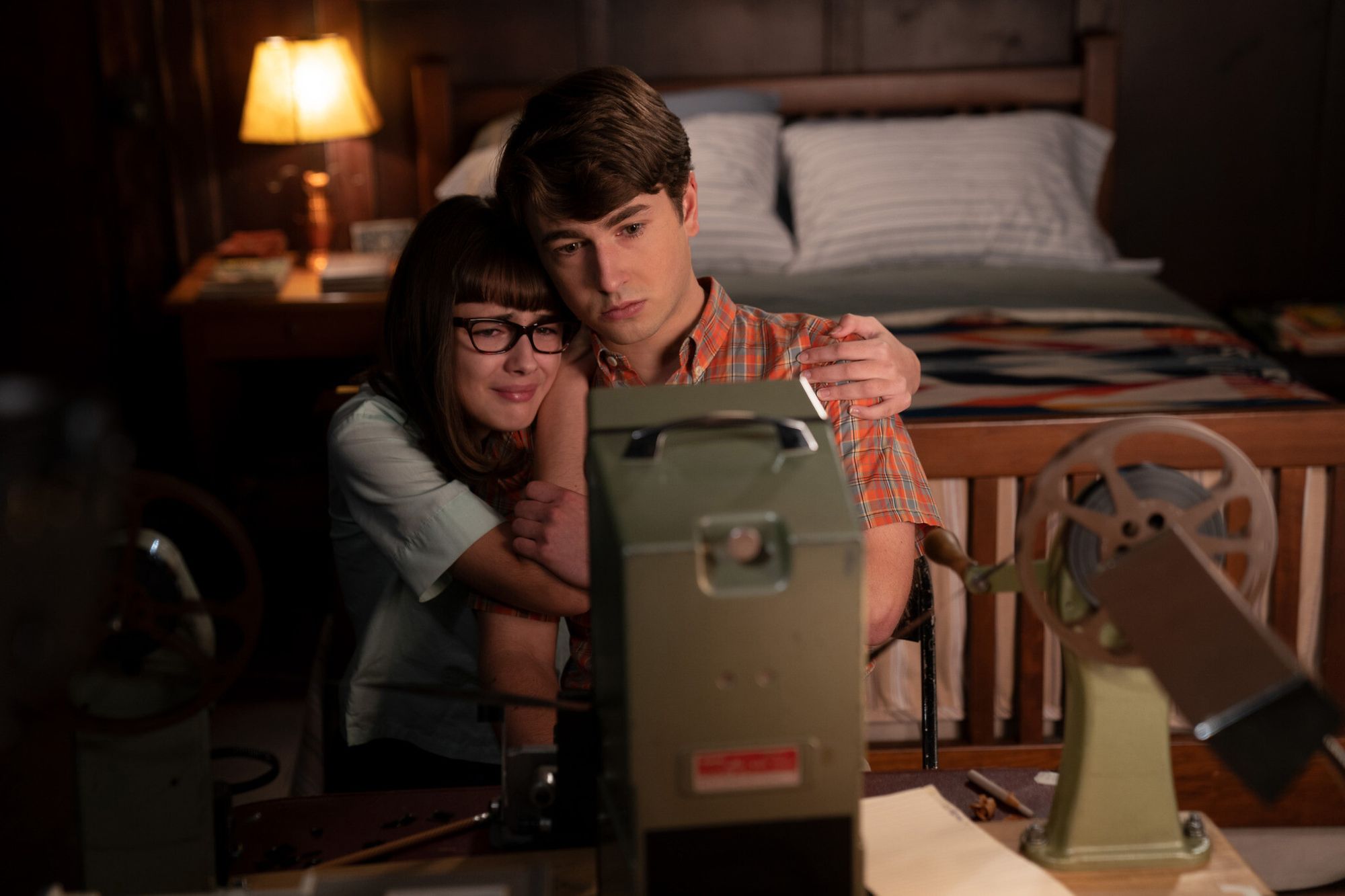Capturing the Spielbergs
In which Norm reviews THE FABELMANS, one of the best and most unexpectedly thoughtful films of the year.

It feels like it should be illegal for someone to deliver two full-on masterpieces back to back so late in his career, but that’s Steven Spielberg for you. After the empty technical challenges of The BFG and Ready Player One and the “well, it's a movie” shrug of The Post, Spielberg came roaring back with his magnificent reinvention of West Side Story last Christmas … then followed that film’s maximalist energy with a minor-key drama that’s as good as anything he’s ever done.
That would be The Fabelmans, which premiered at TIFF in September and opened wide this week. Written by Spielberg and his frequent collaborator Tony Kushner, it’s a barely disguised look at the filmmaker’s own history, following the young Sammy Fabelman as he’s held hostage to his parents’ disintegrating marriage, ultimately forging an escape through making movies.
As a logline, it’s reductive and simplistic, and there’s a version of this movie that frames a bright-eyed Sammy’s story as a heroic journey towards the holy grail of a director’s chair. The thing is, Steven Spielberg has made a few of those movies already – more than a few, really, he’s been at this for a while – and he knows exactly how much work goes into them. The Fabelmans is a story about how he decided to do the work, and why he needed to.

Barely a month ago, I wrote about the exquisite sense of home and family Spielberg brought to E.T. The Extra-Terrestrial, and how every one of the Taylors is fully defined and seen as a character. He made that movie forty years ago, and he’s only grown more attentive and empathetic. The story goes that Spielberg made The Fabelmans now because COVID galvanized him into writing it, but in the TCM Festival interview included on the new E.T. disc he reveals he was developing a version of it as far back as the late ’70s – and when an alien-invasion project he was working on with John Sayles fell apart, Spielberg wondered what would happen if one of the aliens from that script met the family from his other thing.
I’m glad Spielberg didn’t make The Fabelmans in his early thirties. He needed to be older; he needed to let his memories settle and steep, and to experience his own heartbreaks and losses before tackling his parents’. Watch Spielberg’s West Side Story, and it’s immediately apparent he’d been thinking about how to that story for his entire adult life; you can feel it even more clearly in this one.
Sammy Fabelman is an awkward, watchful kid. And you can’t blame him. His father Burt is a fussy intellectual who can only relate to people through mechanisms – someone we’d now classify as “on the spectrum”, but in post-war America he’s perceived as a bit of an odd duck. Mother Mitzi is the extrovert, a pianist and dancer who gave up a life in the arts for love and wound up regretting it. They’ve tried to create a happy home for Sammy and his three younger sisters, but as the song says: Start with a weak foundation, you will end in ruins.
Burt tries to keep everything together by moving the family to Arizona for a job opportunity, but Sammy is exactly the wrong age to roll with it: He’s been uprooted from his friends and community in California and dropped into a wasteland where he’s the only Jewish kid in his high school, and bullied mercilessly for it. (Obviously Spielberg has dealt with antisemitism in previous films, but he’s never presented it as so petty or so personal; like so much of The Fabelmans, the idea lands differently, and harder.) Only once he picks up a movie camera and realizes he can show people how he perceives them – and maybe more importantly, make them feel what he wants to feel – does Sammy find any sort of power. He’s helpless to change his parents’ trajectory, but he can distract himself, and that’s something.

And it’s the manner through which Spielberg considers his younger self that’s so fascinating: It’s a mirror of Close Encounters, in which the protagonist is drawn to something for reasons he never fully understands. And as in Close Encounters, the movie shows us the way Sammy’s obsessions destabilize the people around him; his hyper-focus isn't an ability he can control, or which benefits him in the short term. Judd Hirsch’s cameo as a visiting relative who can smell a fellow obsessive before he’s even unpacked his suitcase, and knows Sammy is just as doomed as he is, spells that out for him, as does Seth Rogen’s wistful Uncle Benny, though of course Benny is filtering Sammy’s issues through his own impossible desire. Rogen never gets enough credit for his dramatic work, and he's absolutely wonderful here, as is his former Take This Waltz co-star Williams, whose gradual sloughing off of Mitzi’s fun-mom disguise is both exquisite and heartbreaking. (By the way, if you’ve been hankering to see that film again we’re screening it at the Lightbox next month – in 35mm, even! – as part of our Sarah Polley series.)
Rogen and Williams have the brighter roles, and the more complicated narratives within the story, but I don’t want to neglect Paul Dano, who once again gives a perfectly modulated performance that’s doomed to fly under the radar because it’s not demonstrative or flashy; Burt Fabelman is forever trying to connect with the people he loves, and never quite getting there.
And Gabriel LaBelle, who plays the teenage Sammy, is an open book: He’s an empath who doesn’t know where to put any of the emotions he’s receiving, until he learns to channel them through his lens. None of this is ever expressed directly; there’s no big monologue about how stories work on an audience, and Sammy doesn’t have a big speech about why he wants to make movies. He needs to, and LaBelle makes sure we perceive that need in everything he does.

And here’s the thing that surprised me the most: Spielberg doesn’t milk any of it. We get hints of his future work – an army battle that prefigures Saving Private Ryan, a beachside romp that could be taking place in the first act of Jaws, and of course there’s the domestic fragmentation that’ll be echoed in Close Encounters and E.T. – but The Fabelmans never makes an obvious nod towards one of the most well-known bodies of work of the last half-century. No dinosaurs, no aliens, not even a screening of the original West Side Story. Whether Kushner clipped them all out or Spielberg himself knew better, it’s the right move: We aren’t constantly being pulled out by references, just left wondering why Spielberg still hasn't made a proper Western. Maybe he’s too intimidated by John Ford. God knows I would be.
In Sunday’s paid edition: Malcolm X, Saturday Night Fever, Wayne’s World and Planes, Trains & Automobiles are back in new 4K editions, if you’re making a holiday wish list. Subscribe now so you don’t miss out!
